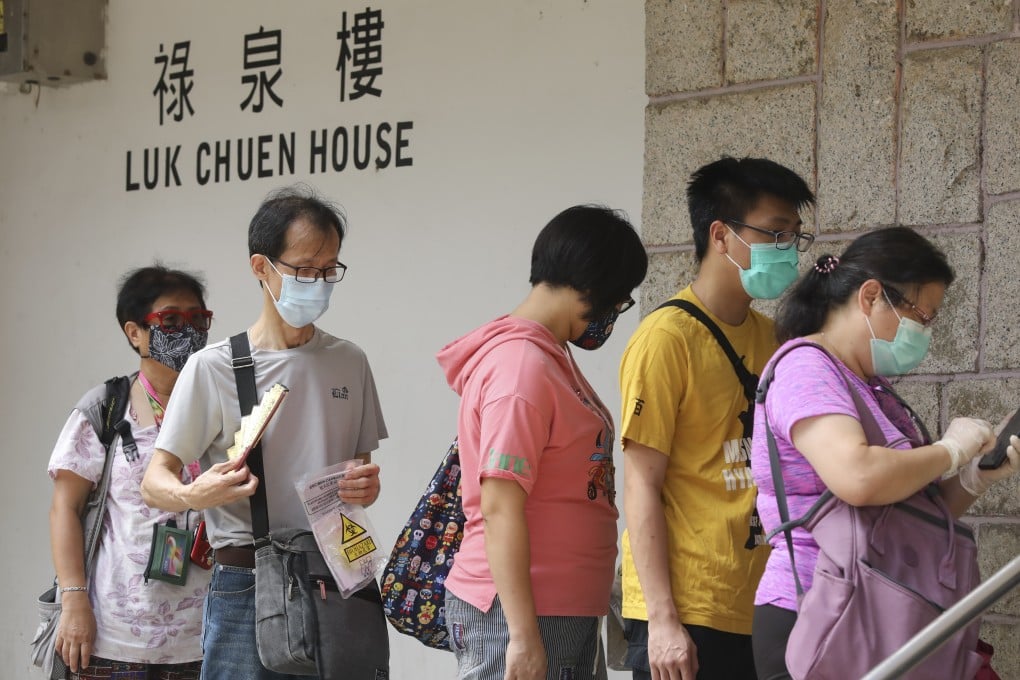Coronavirus: mandatory testing for Hong Kong housing block residents after nine Covid-19 patients linked to same cluster
- City reported six cases on Tuesday, four of which were local infections connected to housing estate in Sha Tin
- Top microbiologist recently warned of potential for a single individual to infect many in the development

The decision came after public health experts called for mandatory screening for those who had not returned test bottles. They also heaped pressure on the government to increase testing capacities in both the public and private sectors to find any virus carriers in the community.
The city’s tally of infections remains at 1,093, with four related deaths.
The recent cluster of nine patients surfaced on Sunday when officials confirmed the infection of a 34-year-old woman, who works at a Kerry Logistics warehouse in Kwai Chung. It later expanded to include her 56-year-old husband, two of her colleagues, and the paramedic who took her to hospital.

Of the six infections reported on Tuesday, four were linked to the cluster, all from Luk Chuen House in Lek Yuen Estate in Sha Tin, and neighbours of the woman. The other two infections involved a boy returning from Pakistan and his close contact.